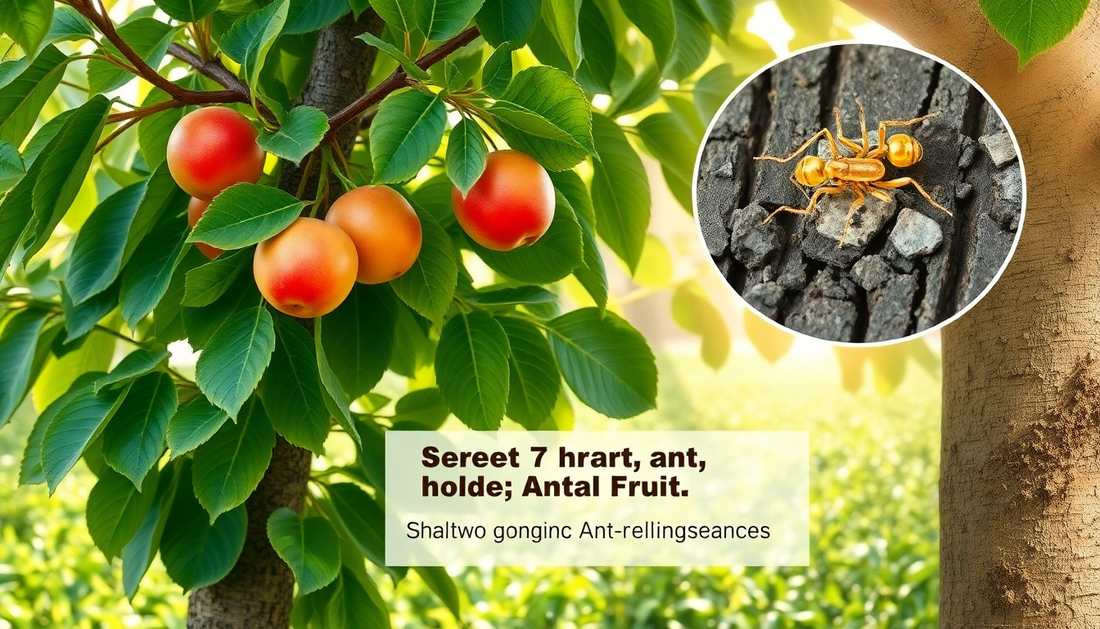
How to Stop Ants from Damaging Your Fruit Trees
Ants can be a real nuisance when it comes to fruit trees. These pesky insects can cause significant damage to your precious fruit by feeding on the nectar, leaves, and even the fruit itself. If left unchecked, ants can severely compromise the health and productivity of your fruit trees. In this comprehensive guide, we'll explore effective strategies to stop ants from wreaking havoc on your fruit trees and help you maintain a thriving, pest-free orchard.
Understanding Ant Behavior
To effectively combat ants, it's crucial to understand their behavior and the factors that attract them to your fruit trees. Ants are drawn to the sweet nectar and juices found in fruits, as well as the honeydew produced by aphids and other sap-sucking insects that may be present on your trees. They also use the trees as a means of accessing other food sources, such as insects or even small animals.
Ants are highly organized and work collaboratively in colonies, making them a formidable foe. They can quickly establish nests near or even within the root systems of your fruit trees, further compromising the tree's health and making it more susceptible to other pests and diseases.
Implementing Physical Barriers
One of the most effective ways to prevent ants from accessing your fruit trees is to create physical barriers. This can be done by using a variety of methods, such as:
Tree Bands
Applying a sticky, greasy substance like petroleum jelly or a commercial tree band around the trunk of your fruit tree can create an effective barrier that ants cannot cross. Be sure to reapply the substance regularly, as it can dry out or become less effective over time.
Moat Traps
Surrounding the base of your tree with a moat-like barrier filled with water or a soapy solution can effectively trap and drown any ants attempting to climb up the trunk.
Diatomaceous Earth
Sprinkling a ring of diatomaceous earth around the base of your tree can create a sharp, abrasive barrier that ants cannot cross without sustaining damage to their exoskeletons.
Tanglefoot
Applying a sticky, gooey substance like Tanglefoot to the trunk of your tree can create a physical barrier that ants cannot traverse.
Utilizing Natural Repellents
In addition to physical barriers, there are several natural repellents that can help deter ants from your fruit trees. These include:
Essential Oils
Certain essential oils, such as peppermint, lemongrass, or cinnamon, can be effective in deterring ants. Mix a few drops of these oils with water and spray or wipe the solution onto the trunk and lower branches of your fruit trees.
Vinegar
Spraying a solution of equal parts water and white vinegar around the base of your fruit trees can help mask the scent trails that ants use to navigate and discourage them from approaching.
Chalk
Drawing a line of chalk around the base of your fruit trees can create a physical barrier that ants are reluctant to cross.
Cinnamon
Sprinkling ground cinnamon around the base of your fruit trees can help repel ants due to its strong scent.
Biological Control
Encouraging the presence of natural ant predators, such as birds, lizards, or beneficial insects, can also help control ant populations around your fruit trees. Consider planting native plants that attract these predators to your garden, or consider introducing them directly.
Maintaining Tree Health
Keeping your fruit trees healthy and vigorous is crucial in the fight against ants. Ants are often attracted to trees that are stressed or weakened, so ensuring proper watering, fertilization, and pruning can help make your trees less appealing to these pests.
Integrated Pest Management
For severe ant infestations, a combination of the above methods may be necessary. Implement a comprehensive integrated pest management (IPM) strategy that incorporates physical barriers, natural repellents, biological control, and maintaining tree health. This holistic approach will help you effectively and sustainably control ants while protecting your fruit trees and the surrounding ecosystem.
Remember, patience and persistence are key when it comes to managing ants around your fruit trees. By using a variety of proven techniques, you can successfully deter these pests and enjoy a bountiful harvest from your thriving fruit orchard.
Conclusion
Ants can be a frustrating and persistent problem for fruit tree growers, but with the right strategies, you can effectively protect your trees and ensure a healthy, productive harvest. By utilizing physical barriers, natural repellents, biological control, and maintaining overall tree health, you can create an environment that is inhospitable to ants while promoting the growth and vitality of your fruit trees. With a little effort and a comprehensive IPM approach, you can say goodbye to ant-related damage and enjoy the sweet rewards of a thriving fruit orchard.







No comments